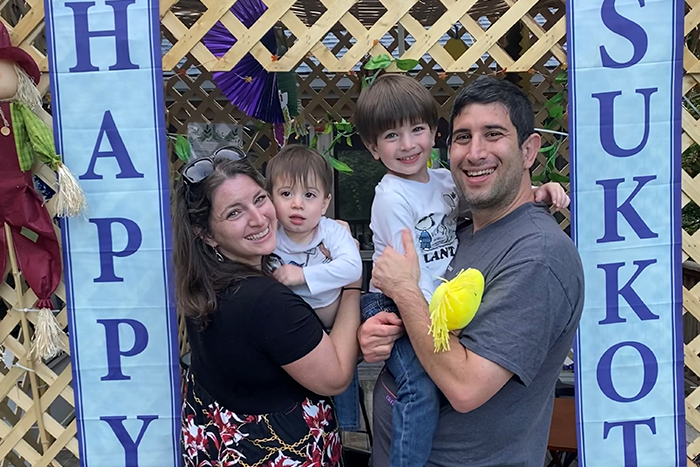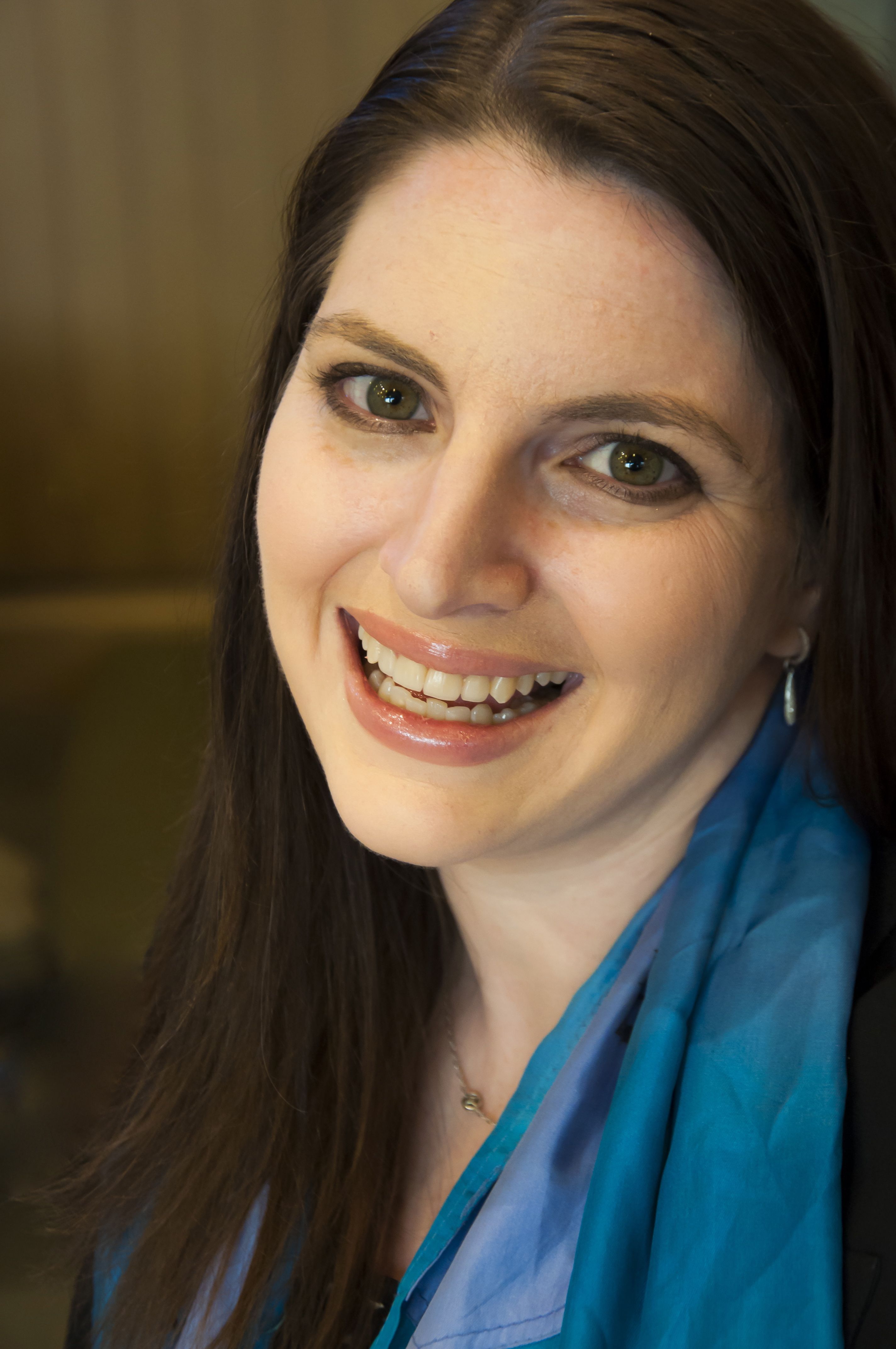
Cantor Lauren Phillips Fogelman and family in their sukkah.
Sukkot is known in Hebrew as "Z’man Simchateinu" – the time of our joy. It’s the happiest festival on the Jewish calendar, representing a time for coming together to enjoy family, nature, and a bountiful harvest.
My family erected a sukkah for the first time this year, which gave us numerous excuses to experience the joys of in new and exciting ways. My kids enjoyed helping decorate the sukkah with twinkle lights and handmade artwork, dancing with the and , and eating all our meals outside. Having a sukkah gave us a reason to invite friends and family we had not seen for a very long time for outdoor dining.
But what happens when it’s time to take the sukkah down? Since Sukkot is such a celebratory occasion, the act of deconstructing the sukkah can be quite depressing. The sukkah is built in rush during the four short days between Yom Kippur and the beginning of Sukkot. Yet there’s no real deadline for taking it down. Since we had so much fun in our sukkah, we procrastinated and kept ours up for a few extra days. We had my brother and his family over for Shabbat dinner, eating outside in the Sukkah even though the holiday was technically over. It warmed my heart when my almost four year old, Alex, asked if we could keep the Sukkah up forever.
As tempting as it was to say "yes," I knew in my heart that the sukkah wouldn’t survive a northeastern winter. The wood frame was already starting to buckle under the weight of the schach (roof). Even the tiniest snowfall would make it collapse. Besides, the whole point of a sukkah is that it's a temporary structure. It reminds us of our historical vulnerability as Jews. Also, if we kept the sukkah up permanently, it would simply become an ordinary part of our porch.
When the time came to take down the sukkah, Alex said sadly, “I’m going to miss the sukkah.”
I gave him a consoling hug, reassured him that we would build a new sukkah next year, and said, “Now we have something to look forward to.”
With that, Alex started thinking about ideas for next year’s sukkah decorations. So far, my favorite is a "Frozen"-themed sukkah, complete with dangling snowflakes.
Related Posts

Harnessing the Power of our Mothers Around the Seder Table

Melding Tradition and Innovation: Our Interfaith Toddler Naming Ceremony


